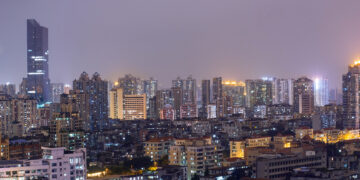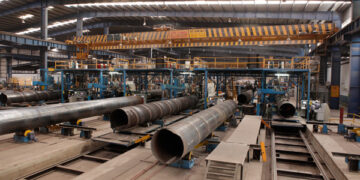ASAHI INDIA GLASS LIMITED
Know the Company
Asahi India Glass Ltd (AIGL) is a leading glass manufacturer in India, renowned for delivering a diverse range of high-quality glass solutions across Automotive Glass, Architectural and Consumer Glass segments. AIGL was started in 1987 as a joint venture with the Labroo family, Asahi Glass Co. Ltd, Japan (now known as AGC Inc.) and Maruti Udyog Limited (now known as Maruti Suzuki India Limited).
AIGL holds the position of the second-largest manufacturer of float glass in India. The Company’s product portfolio including laminated windshields, tempered glass for sidelights and backlights as well as value-added products like solar control glass, acoustic glass, defogger glass heated and rain sensor windshields, etc. AIGL has 13 manufacturing facilities which all are located in Bawal, Haryana, Roorkee, Uttarakhand, Chennai, Tamil Nadu, Taloja, Maharashtra and Patan, Gujarat. Almost all of the automotive companies in India are the OEM customers of AIGL.
Product Portfolio
- Automotive glass
Over three decades, AIGL has been the first choice for Automotive OEMs, especially for passenger vehicle segments in India. The company’s range of automotive glass products includes laminated glass for car windshields, tempered glass for side windows, backlights, sunroofs and among others. Now the company stands as a foremost provider of automotive glass solutions with an impressive 72% market share in the passenger car glass segment.
- Architectural Glass
AIGL is a prominent producer and supplier in the architectural glass industry, which providing a diverse range of highly specialised value-added glass products. The Company’s products including float glass, high performance coated glass, mirror, back painted glass, decorative glass, processed glass and other value-added glass products. These products are designed to use for both interior and exterior use in modern architecture as well as prioritize the safety while improving visibility and enhancing overall experiences. Among the Architectural Glass segment company has nearly 18% market share.
- Consumer glass
AIGL launched its Consumer Glass division in response to the expanding economy and the rise in purchasing power, which have resulted in contemporary style favored consumers increasingly depending on innovative and stylish glass solutions for the finishing touches in their offices and homes. This strategic business unit is primary interface with end-consumers on consultation-led, customised offerings. Products of the Consumer Glass division include Bay windows, Sliding doors and windows, Tilt and turn windows, Combination windows, Casement windows and French windows Pergola glass etc.
Key Strengths
Expanding horizon: Over the past three decades, AIGL has transformed itself from a glass manufacturer to a complete glass solutions provider, by offering a comprehensive range of products and solutions for home, offices, automotives, large and small buildings. Company’s Auto Glass has maintained its position as the preferred option for automobile manufacturers across passenger and commercial vehicle segments, including trucks, buses, railways, metros, tractors and off-road vehicles. The Company has almost 72% market share in the Indian Automobile glass segment as well as it is the most preferred glass supplier for almost all OEMs.
Company also has strong presence in architectural glass segment with 18% market share. Presently, Company’s 56% revenue derives from Auto glass segment and the remaining 44% from Architectural glasses. AIGL boasts impressive design and development capabilities, fostering a culture of continuous innovation in glass products.
Capacity additions in line with increasing demand: In the current fiscal year, AGIL is earmarking the highest-ever capital expenditure of about Rs 900 crores for capacity additions. Most of this and the subsequent years investments are in its third Float furnace in Rajasthan (F3) mainly for automotive glass, as well as this unit has the flexibility to make the best architectural glass too. It also is carrying out brown-field expansions in its auto glass business in Patan, Chennai and Bawal.
AIGL has commenced its fire-resistant glass (FRG ) production in September,2023 at its Roorkee Plant, enhancing its position further in India’s glass and window solutions sector. This facility will manufacture FRG under the AIS Pyrobel-T brand, meeting international standards for integrity and insulation. Equipped with proven technology from partner Asahi Glass Co., Europe (AGC), the new unit will produce high-quality fire-resistant glass in various classes: Integrity (E), Radiation Resistance (EW), and Heat Insulation (EI), etc.
Favorable emerging trend: The Indian automotive market is positioned for substantial growth and expansion, with one of the most noteworthy trends being the surge of electric vehicles (EVs). The EV market in India is anticipated to experience exponential growth, driven by supportive government policies and a growing awareness of environmental sustainability among consumers. Additionaly, the soaring demand for glass products across diverse sectors like construction, and packaging fosters a thriving environment for glass manufacturers.
Beneficial policy changes: Indian float glass manufacturers have been enjoying the advantages of the anti-dumping duty imposed on glass imported from Malaysia (for a five-year period starting from December 2020). In addition to this, lower imports from China due to the enforced decarburization movement also contributed to improved demand-supply dynamics, favoring domestic float glass manufacturers. With no significant capacity additions expected in the near future for the float glass industry, AIGL will be a major beneficiary in the coming years. The company is also taking the policy of ‘Atmanirbhar Bharat’ very seriously as a responsibility and great opportunity.
Financial Results
AIGL’s consolidated revenue for the Q3 FY24 registered at Rs 1,044 crore, reflecting a modest increase from the Rs 1,010 crore reported in the corresponding quarter of the previous fiscal year. During the same period, the company recorded a net profit of Rs. 63 crores, compared to a net profit of Rs. 83 crores for the quarter ending on December 31, 2022.
Balance Sheet
AGIL shows a great sense of financial prudence by carefully balancing its debt and equity, aiming for a proportionate balance that optimizes growth, ensures liquidity and preserves financial metrics. Due to the higher Capex, company’s debt increased by Rs 145 crore to Rs 1324 core for the financial year ended March, 2023 as against the previous financial year. Nevertheless, debt metrics showed slight improvement in FY2023, with the Company’s Net Debt to Equity Ratio decreased to 0.57 from 0.6 in FY2022.
Outlook
The Indian glass industry is poised for robust growth in the foreseeable future, primarily supported by the flourishing construction, automotive and solar sectors. The government’s emphasis on infrastructure development including metro rails and smart city projects expected to fuel heightened demand for glass products, particularly in architectural applications. Additionally, India currently stands as the fourth largest automotive market globally, and it has demonstrated stable growth across all vehicle segments especially after the introduction of EVs.
The glass industry in India indeed offers numerous opportunities for growth. The rising demand for glass products across various sectors, especially in the construction sector, creates an adding business environment for glass manufacturers. Rising middle-class population and increased consumer spending are likely to boost the demand for home renovation using more glass products like shelf, kitchen shuttering, partitions and shower cubicles, etc.
Risk Factors
Though the Indian glass industry has been showing steady growth in recent past, it is also facing several challenges in the form of competition from alternative materials, especially in construction and packaging sectors and margin pressure on rising raw material costs.
The growth of the company’s products primarily depends on the growth of the automobile and construction sectors, both of which are directly linked to the overall economic growth and disposable income of the public. Present scenario is favorable for the company, but geopolitical tensions, persistent elevated global inflation may cause demand slowdown in these segments, if happens, it may adversely affect the company’s performance.
















